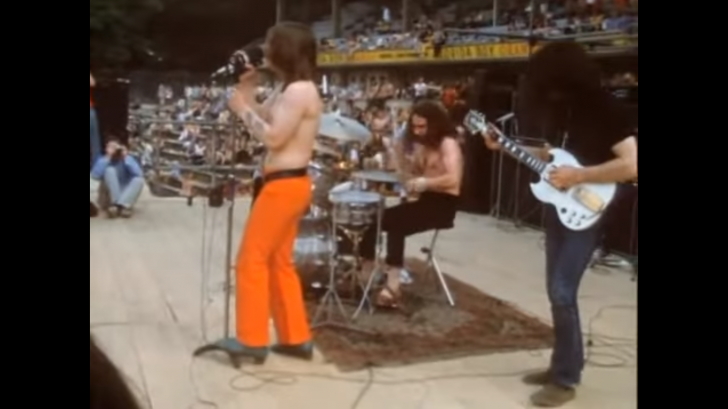Black Sabbath, the iconic pioneers of heavy metal, have left an indelible mark on the music scene. From their eponymous debut in 1970 to the present day, the band’s dark and ominous sound, along with their captivating stage presence, has shaped the very essence of metal. In this article, we delve into 20 fascinating facts that even the most ardent fans may not know about Black Sabbath.
Only One Session
Remarkably, it took just one recording session for Black Sabbath to create their self-titled first album in 1969, setting the stage for a legendary career.
Tony’s Change of Heart
Before even recording a single song, guitarist Tony Iommi briefly left the band in 1969. Fortunately, he changed his mind, ensuring the continuity of Black Sabbath.
Story Behind the Name
The band derived their name from a 1963 Boris Karloff film, debunking speculations about alternative sources. The connection to Coven’s debut album was merely coincidental.
Mysterious Album Cover
The identity of the woman on the cover of Sabbath’s debut album remained a mystery until a 2020 interview, adding an intriguing layer to their history.
Ozzy’s Soulful Roots
In his younger days, Ozzy Osbourne was a fan of soul music, citing Sam and Dave among his favorite acts, showcasing the diverse musical influences within the band.
“Fairies Wear Boots”
The song “Fairies Wear Boots” was inspired by an encounter with combat boot-wearing skinheads who disrupted one of Sabbath’s early concerts, showcasing the band’s penchant for drawing inspiration from real-life events.
Collaboration with Rick Wakeman
To refine their sound for “Sabbath Bloody Sabbath” in 1973, the band enlisted Yes keyboardist Rick Wakeman, showcasing their commitment to musical excellence.
Unconventional Album Art
While “Technical Ecstasy” featured a sophisticated cover crafted by Hipgnosis, Ozzy Osbourne later dismissed it as “two robots screwing on an escalator,” revealing the band’s humor and spontaneity.
Ozzy’s Temporary Departure
Ozzy Osbourne officially left Sabbath in 1979, but the departure had occurred in late ’77, leading to the recruitment of Dave Walker for a single TV performance.
Holy, Dio!
Ronnie James Dio was recommended as Ozzy’s replacement by band manager Don Arden’s daughter, Sharon Osbourne, marking a pivotal moment in Sabbath’s history.
Unexpected Collaborations
When Deep Purple’s Ian Gillan joined Sabbath in 1983, plans for a new band were disrupted, leading to the release of “Born Again” and “Seventh Star” under the Black Sabbath name.
Original Four Comeback Album
In 2001, the original members almost recorded a comeback album with producer Rick Rubin, but Ozzy’s solo commitments and “The Osbournes” reality show derailed their plans.
Tony Iommi and Lita Ford
Tony Iommi’s brief engagement to Lita Ford ended when the album he produced for her was shelved indefinitely, showcasing the challenges faced by band members outside of music.
The Enigma of “Paranoid”
The artwork for the “Paranoid” album perplexed fans, as it originally referenced the album’s intended title, “War Pigs,” before a last-minute change.
Support from Rob Halford
When Sabbath agreed to support Ozzy Osbourne on his retirement shows, Ronnie James Dio initially balked, leading to Judas Priest’s Rob Halford filling in at short notice.
Brian May’s Guest Appearance
Queen guitarist Brian May played lead guitar on the particularly heavy “When Death Calls” from the 1989 “Headless Cross” album, highlighting unexpected collaborations within the rock world.
Bill Ward’s Jazz Influences
Despite his reputation for powerful drumming, Bill Ward’s primary influences were big band jazz greats like Gene Krupa and Buddy Rich, evident in Sabbath’s first LP.
Geezer Butler and Tom Hanks
Bassist Geezer Butler’s close friendship with Oscar-winning actor Tom Hanks, both supporters of Birmingham’s Aston Villa football club, adds a touch of unexpected camaraderie.
Behind-The-Scenes Assistance
Geoff Nicholls contributed keyboards to Sabbath’s albums since 1979, showcasing the collaborative efforts that often go unnoticed in the band’s history.
Tony Iommi Goes Pop
The master of doom riffs, Tony Iommi, surprised fans by penning a pop song for the 2013 Eurovision Song Contest, performed by Armenian rock band Dorians, demonstrating the guitarist’s versatility.

